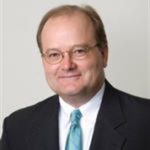The National Association of Boards of Pharmacy recently announced that it would support a proposal to give the FDA more authority to regulate large compounding pharmacies. The move is an attempt to prevent some of the dangerous outbreaks that have been linked to contaminated medications produced by these compounding pharmacies.
The head of the NABP released a statement saying his group welcomes FDA action to regulate pharmacies like the one responsible for the deadly fungal meningitis outbreak that occurred last year and which left 50 people dead and nearly 700 injured. The support of the NABP was seen as critical to turning the idea of stricter oversight of the compounding industry a reality.
Compounding pharmacies are unique in that they exist in a kind of regulatory no man’s land. They are supposed to operate under the scrutiny of state agencies, yet frequently distribute medications across state lines, sometimes hundreds of thousands of drugs each year. Compounding pharmacies mix specialized injections, creams and other drugs into formulas specified by doctors. Though state boards of pharmacy have historically regulated the drug makers, they have struggled to keep pace in recent years given the larger operations that have sprouted up.
The NABP president said that given the size of many compounding pharmacies today, they should be treated like drug manufacturers and thus regulated by the FDA rather than state agencies. A proposal currently before the Senate refers to the compounders as “manufacturers” and would require that they register with the FDA and meet the same quality control standards of other pharmaceutical companies like Pfizer and Eli Lilly.
Though previous attempts to regulate the industry have failed, a recent string of deaths and contaminated medicines have many believing this attempt might be successful. Since 2001, 75 people have died and more than 1,020 illnesses have been linked to drugs that came from compounding pharmacies.
About the Editors: The Shapiro, Lewis & Appleton & Favaloro personal injury law firm, which has offices in Virginia (VA) and North Carolina (NC), edits the injury law blogs Virginia Beach Injuryboard, Norfolk Injuryboard and Northeast North Carolina Injuryboard as pro bono services.










Comments for this article are closed.